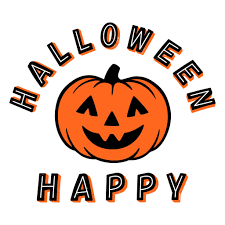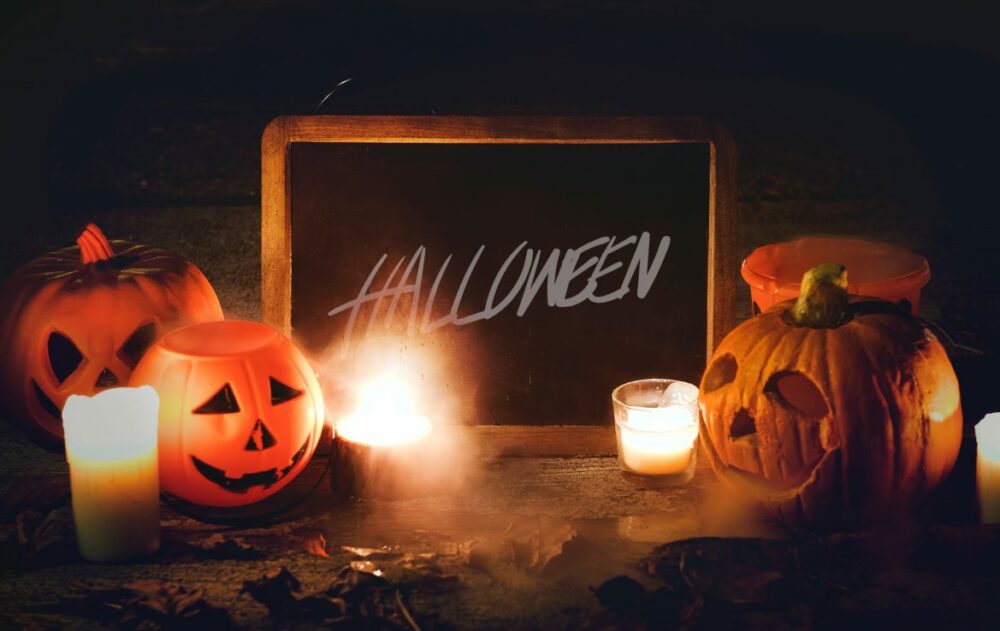Table of Contents
When the Saints Go Marching In – Feeling like a Sinner or Saint on Halloween
When the Saints Go Marching In, but wait, how is this song related to Halloween?!
Halloween: A Mixed Bag
Most people don’t realize it but Halloween is a stew of cultural traditions and heritages. The Catholic Church has left a huge imprint on the holiday. Even the name of Halloween originated with the Church “Hallow” means Holy – and “een” means eve. So the word means Holy Evening. But how did it get this way?
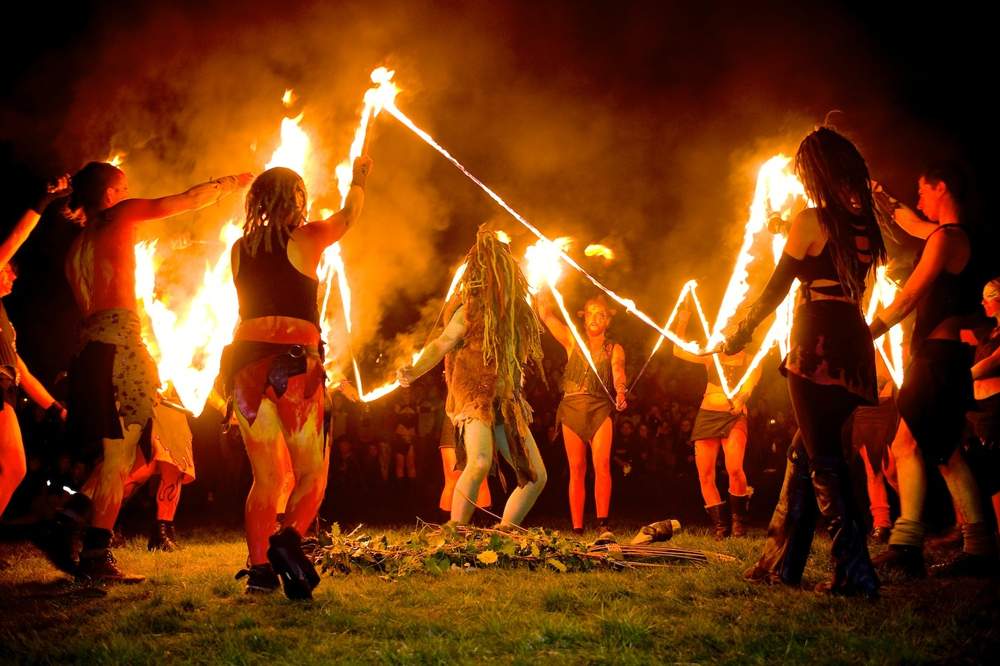
About 1600 years ago people used to celebrate a pagan and Celtic festival called Samhain. This was a ghostly harvest festival that celebrated a good crop. The festival also celebrated when the borders between the afterlife and the current world thinned. People at that time used to think that spirits walked the earth at this time of year. People would build large bonfires for the celebration, and they would leave food and treats outside their homes – believing this would appease the spirits.
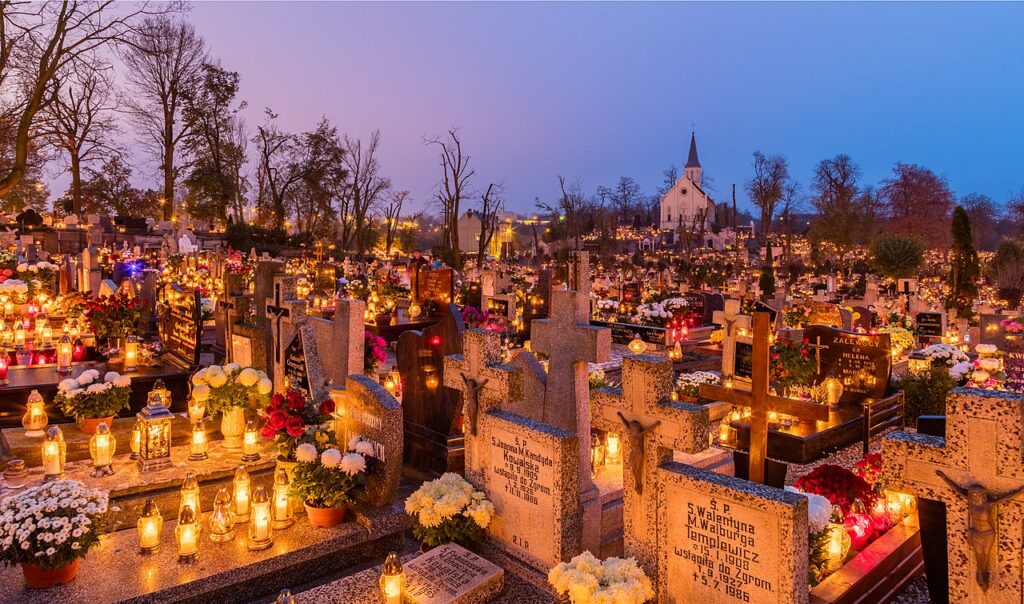
Halloween: The Catholic Church Makes It About Saints
As early as the 4th Century – feasts began to be created to celebrate Christian Martyrs. Popes continually preached about the saints and their holiness. The Catholic Church did not like the Pagan Samhain festival and created a Hallow Day for the Saints on the first day of November. So over time the Pagan Celtic Rituals began to transpire to a day about saints. A couple of centuries later the church added All Souls Day (Nov 2nd) to commemorate the Christian Dead. Many Protestant Denominations have adopted “All Saints Day” as well.
When the Saints Go Marching In – A African American Spiritual
Originally known by the title “When De Saints Come Marchin’ In,” the hymn was born as a message of hope for African American slaves who longed for a release from their suffering. Without going into detail about the horrors of the Last Judgment, the traditional lyrics use apocalyptic imagery from the bible’s Book of Revelation to signal a jubilant release from bondage. The stars falling from the sky, the moon turning red with blood, the trumpet sound calling, and the horsemen beginning to ride are all references to John’s biblical account of the final days.
The first published version, titled “When The Saints Are Marching In,” was issued in June 1896 in Williamsport, Pennsylvania, by James Milton Black and Katharine Purvis. Another variation cropped up in January 1908, copyrighted by Harriet E. Jones and James D. Vaughan as “When The Saints March In For Crowning.” The most familiar rendition was published by song collector Edward Boatner in 1916.
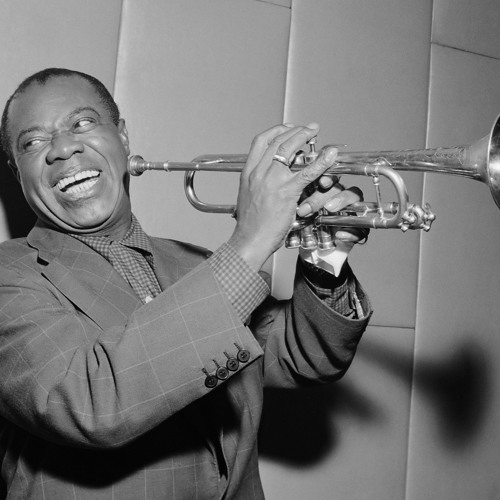
When the Saints Go Marching In – Louis Armstrong Takes it Over
Boatner’s copyright was first recorded in 1923 by the Paramount Jubilee Singers as “When All The Saints Come Marching In,” followed by the Elkins-Payne Jubilee Singers in 1924. By the time Louis Armstrong recorded it with his orchestra on May 13, 1938, it was a staple among bands in his hometown of New Orleans, where it was played by noted jazz leaders like Buddy Bolden and Kid Ory. Armstrong joined Ory’s combo in 1919 but was already familiar with the hymn from his reform-school days at New Orleans’ Colored Waif’s Home; the institution’s band (featuring Armstrong on cornet) played it every Sunday to accompany the less-than-saintly boys to church service.
Armstrong’s jazzed-up version brought the hymn nationwide prominence, but his recording was met with backlash from religious circles who thought combining the sacred with the secular was blasphemous. That didn’t stop the tune from becoming a jazz standard that was recorded by a range of artists across genres, including The Delta Rhythm Boys, The Vagabonds, The Weavers, Judy Garland, Bing Crosby, Elvis Presley, Fats Domino, and Jerry Lee Lewis, among others.
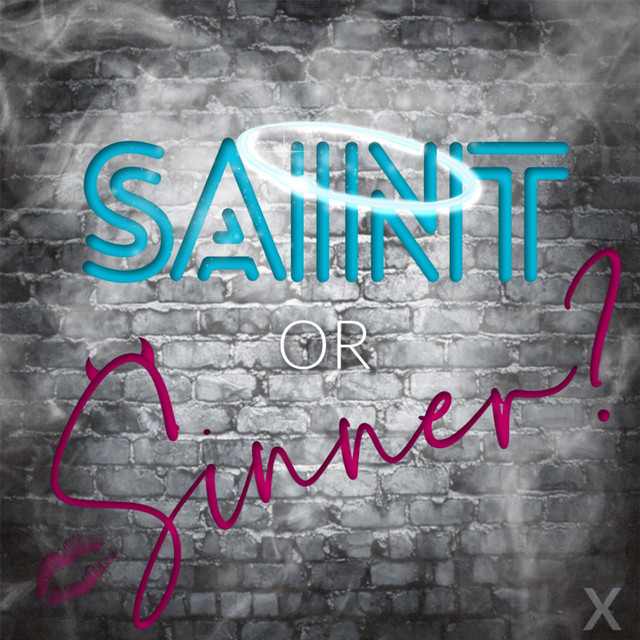
Saint or Sinner on Halloween
If you’re a saint on Halloween, then for the most part you shouldn’t have any problems. If you’re a sinner on Halloween, then hopefully it’s in the jurisdiction of the law and try not to do anything too crazy! Happy Halloween!
For More Information About the Samhain Festival – Follow this Link…
For More Information About All Saint’s Day – Follow this Link…
To Return to the Halloween Site – Follow This Link…
The All Halloween Website – (celebratehalloween.net)
